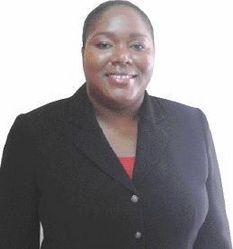SMART CHOICES - Understanding the financial life cycle - Pt 2
Published: Wednesday | December 9, 2009

Simone Evans, branch operations Manager, JMMB Mandeville. - Contributed
AS THE curtain begins to come down on a year fraught with economic challenges, Jamaicans are being reminded of the importance of careful financial planning and the need to make the right decisions about money. Moreover, if you are serious about wealth creation and making adequate preparation for your family's needs - both now and in the future - there are some key things to bear in mind.
According to Simone Evans, operations manager for the Mandeville branch of the Jamaica Money Market Brokers (JMMB), an understanding of the financial life cycle is the first basic element for successful financial decision making.
"If you are serious about saving, achieving your goals and meeting your obligations, you will want to know what to do now and what to do to prepare for the next stage of your life," she said. Evans contended that making plans for one's financial life has to begin with a clear map of how much you will earn at the various stages of life and the things for which you will need money.
So how does knowing that help a person to make the right financial choices?
Evans used the example of a JMMB client who was faced with a tough decision. The client, who we will call Peter, was 55 years old. He had finally paid off his mortgage and his youngest child was getting ready to graduate from university. For years, Peter dreamt of starting a furniture business. His total savings was just about enough for start-up capital. Peter's question was: Is it a good idea to use my life savings to start a furniture business at this time?
Evans' advice began with a brief outline of the four main stages in the financial life cycle.
"The first thing Peter needs to know is where he falls in the cycle, and what the next phase in the cycle will be," she explained, pointing to the stages that begin with the 'early-earning' phase, followed by the 'established earning and accumulation' phase. Evans said Peter would fall in the third phase of the life cycle - 'pre-retirement or consolidation' - which usually begins around the age of 55 and lasts approximately 10 years.
"Peter is approaching the retirement and wealth-distribution stage of the life cycle where he will need certainty of income. At this time, an individual would probably begin reducing the number of loans he or she has," suggested Evans. However, she said Peter might need to take a loan in order to push-start his business, ensuring that the cash flow would be able to cover loan payments. Evans also indicated that Peter could have gone the route of combining some of his funds with a loan.
Going forward, she recommended that Peter sit with a representative at his JMMB branch and carefully explore the options available to him.
"Peter needs to remember that retirement is just around the corner and so he has to ensure that a business plan is in place and the business will be able to generate the kind of income he will need, especially if he's planning to use portions of his life savings in this venture," she contended.
For more on the financial life cycle, send your questions to editors@gleanerjm.com, and the team at JMMB will answer online, in print and on air.







